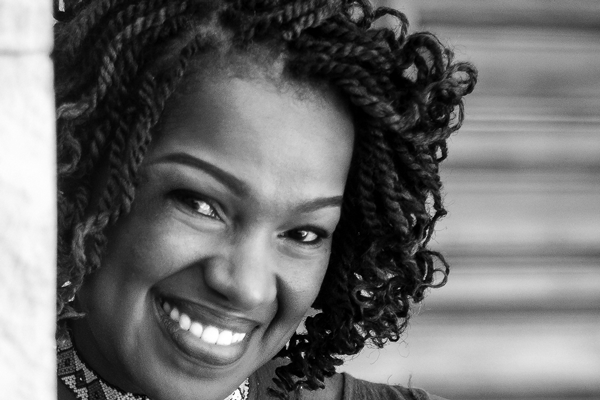
In a 2012 issue of Forbes Africa, South African billionaire businesswoman, Wendy Applebaum, describes how her relationship with her father shaped her appetite for business.
By Thembe Khumalo
“My father had a wonderful way of verbalising what he was doing,” she says.
Her father was the revered multi-millionaire, Donald Gordon, who co-founded Liberty Investors, an insurance and real estate firm.
Describing having dinner in their home, she says it was “like being at Harvard Business School: it was like living in an MBA class”.
I thought about this story this week because I attended a meeting that I thought might have served as a brilliant case study for a business school class.
The divergent agendas, the power dynamics, the body language that spoke more clearly than words ever could and the rocky route to resolution were all in evidence during the hour or so that the meeting played out.
I later wondered where some of the characters had learnt to do some of what they did.
- Chamisa under fire over US$120K donation
- Mavhunga puts DeMbare into Chibuku quarterfinals
- Pension funds bet on Cabora Bassa oilfields
- Councils defy govt fire tender directive
Keep Reading
Was it at business school?
Did they grow up in a tough neighbourhood?
Was there an older sibling, who was a bully?
Or did they have a father who, like Wendy Applebaum’s, sharpened their appetite for corporate combat?
My own parents were conservative civil servants.
My father, as a lecturer, leaned heavily towards academia rather than business.
I didn’t get the benefit of MBA classes over the dinner table, but I did absorb a great deal of critical thinking and robust debate over our meals, and no doubt I developed my love of reading and writing as a result.
One of the things that has fuelled my own foray into entrepreneurship is my desire to model for my own children the opportunities that life as an entrepreneur can create; a major one being the control over one’s time – that single most valuable, irreplaceable asset.
When I occasionally ask them if they would rather go back to the period when we had more money but they saw less of me, they invariably choose the current scenario — less money, more presence please, mum.
Of course, they would be happier to have more presents as well as presence, but that will come to pass in due course. It is no secret that children learn by imitation.
We observe them from the time they are tiny babies and we stick our tongues out at them.
With the fragile control over his own tongue, the baby makes a valiant effort to do the same.
Later, we potty train them by allowing them to see us on the toilet, and pointing out to them the results so that they too can imitate and get a round of applause if they deliver.
Of course reward and punishment are also important tools in teaching children what is desirable, but primarily copying what we do is what drives them to do the same.
What many parents do not think about, is the effect on their children of watching how they manage self.
A good example is positive and negative self talk.
When a child grows up listening to its parents describe themselves as “victims of the system”, as people that institutions don’t care about, or as ones whose opinions don’t matter, it is difficult to see how that child can grow up feeling like an empowered and a worthy adult, who has the capacity to effect change and create the world he desires.
By contrast, a child who grows up listening to the adults around him talk actively about how they are going to make things happen, how they are have the ability to shape the future and make their dreams come true, and then sees them go onto do this is likely to find himself with a positive sense of his own control over destiny.
One day, my daughter came home from school reporting incredulously that her teacher told her that Zimbabwe had once had a President called Canaan Banana.
Obviously, this was not news to me. What was new was seeing this information for the first time through my child’s eyes. She thought this was hilarious, and her teacher had apparently added some of her own not-so-complimentary sentiments about the relationship between the former president’s name and the state of the country.
It got me thinking about how the generation of children we are raising now have little or no national pride.
They absorb parental disenchantment with the state of the economy and the country’s politics, and have little impetus to get involved.
How will we turn these apathetic little people into conscientious and concerned citizens?
A few years ago, I had the pleasure of listening to Lakita Garth speak.
A renowned sexual purity advocate and abstinence teacher, Garth regaled the audience with tales of her strict upbringing in Alabama.
More interestingly, she spoke about how her family’s social circle included the likes of Martin Luther King.
“I come from a line of Christians that believe your faith must impact the culture,” she said.
“Growing up, I was taught that rights and responsibility went hand in hand.”
It’s easy to see how someone who grew up surrounded by mindsets such as this can become a powerful advocate in an area that so many are afraid to preach today.
She knows what it is to go against the grain, to persevere, and to win.
Children need to see and hear self-belief, self-affirmation and self-care being lived out by the adults around them if they are to grow up into confident, self-assured adults who have a strong sense of their worth.
While we may be assailed by many problems economic, social and political, we owe it to our children to model a mindset that says we can — and indeed shall — overcome them.











